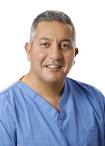Private Endoscopy at our Dublin and Galway Clinics
If your doctor has referred you to the endoscopy department at the hospital, it is likely that you have been experiencing symptoms that require further investigation. Endoscopy is a medical procedure that allows doctors to look inside your body using an endoscope, which is a thin, flexible tube with a camera on the end.
The endoscopy department is where this procedure takes place. It can be used to investigate a range of symptoms and conditions, such as stomach pain, difficulty swallowing, acid reflux, bleeding from the digestive tract, and more.
During an endoscopy, the doctor will guide the endoscope through your mouth or rectum and into the area of concern. The camera on the endoscope will transmit images to a screen, allowing the doctor to examine the inside of your body and look for any abnormalities.
Depending on the findings, the doctor may take biopsies, remove polyps or other growths, or perform other procedures to treat the underlying condition. While endoscopy can seem intimidating, it is a routine procedure that is performed every day in hospitals around the world, and it can provide valuable information for diagnosing and treating a wide range of conditions.
Procedures performed here:
Full Colonoscopy
What is a Colonoscopy?
A colonoscopy is a procedure that allows the Consultant to look at the lining of the large bowel (colon). It allows the Consultant to check the bowel for any abnormalities such as inflammation, polyps etc. A long flexible tube/scope (thinner than your finger) with a light and a camera inside is passed through the rectum into the bowel. The procedure can take 30-40 minutes.
A biopsy may be taken if indicated. This will cause you no pain. Removing polyps increases the risk of the procedure but reduces the risk of bowel cancer in the years ahead.
RISKS
Complications of this procedure are rare however, include perforation (tear), haemorrhage (bleeding) or reactions to medications. These complications may require urgent medical treatment or even surgical intervention (operation) and can carry risk to life and health. It is important to remember that, although colonoscopy is the best test for detecting bowel polyps and cancer, no test is perfect and even with complete examination, serious disease can be missed in up to 5% of cases.
MEDICATIONS (TABLETS)
You may continue to take essential medication but if you are taking anticoagulants such as Warfarin, Plavix, Aspirin, Eliquis or Pradaxa you should receive/seek specific advice from the doctor when the test is being organised. Iron tablets should be stopped one week before the examination. If you have diabetes please inform your doctor before the day of the procedure. If you have any concerns about your diabetes you should contact the Unit for advice before you attend for your test.
PREPARATION FOR THE EXAMINATION
- The scheduling of your appointment is an approximate estimate and unfortunately, there can be unforeseen delays.
- You will be given a laxative drink the day prior to your procedure and/or on the morning of the procedure. Please take this drink in accordance with the dietary instructions provided.
- Fast from food from lunchtime the day before the test.
- Please continue to drink water up to 2 hours prior to admission.
- If you have a referral letter from your doctor, present this to the secretary on arrival.
- Bring details of private medical insurance. Contact your insurance company prior to admission to confirm your level of cover.
- Bring a list of current medications.
- Do not bring jewellery or large sums of money.
- If under 16 years you must be accompanied by your parent or guardian who is required to give written consent.
- You will have sedation for this procedure so you must be accompanied home. You will not be allowed to take a taxi home alone, so please plan for this in advance.
DURING THE PROCEDURE.
- A nurse will be with you at all times.
- You will be asked to lie on your left side.
- An intravenous injection (sedation and a pain relieving medication) is given into the vein to make you feel relaxed and sleepy but not unconscious. This is not a general anaesthetic.
- A monitor will be placed on your finger to assess heart rate and oxygen levels and your blood pressure will be measured every few minutes using a blood pressure cuff on your arm.
- The doctor passes the scope through your rectum and into your bowel.
- Air will be passed into the bowel via the scope which can cause some cramping but this usually passes quickly.
- When the procedure is finished the scope is removed.
SPECIAL REQUIREMENTS
If you use a wheelchair or have a physical or any other disability please contact us to let us know in advance so that we can ensure you receive the appropriate support.
FOLLOWING THE EXAMINATION
- You will be observed in the day ward until the effects of the sedation have worn off. The cannula will be removed from your arm before you go home.
- If you have not received sedation you may go home as soon as follow-up instructions have been given and may resume all normal activities immediately.
- Further tests may be requested by the Consultant. These tests may be completed on the same day of your examination or a future appointment date will be given.
- When you have sufficiently recovered you will receive a light snack.
DISCHARGE INFORMATION
You may experience minor discomfort such as cramps or bloating post-procedure. These usually settle within 24 hours. Your nurse will advise you of further instructions or follow-up pre-discharge. Your doctor may prescribe painkillers following your procedure if required.
IF YOU HAVE HAD SEDATION YOU MUST NOT DRINK ALCOHOL, DRIVE OR SIGN A LEGAL DOCUMENT UNTIL THE FOLLOWING DAY.
YOU MUST BE ACCOMPANIED HOME.
IMPORTANT
Seek medical attention immediately if:
- You begin to vomit.
- You have black bowel motions or rectal bleeding.
- You develop severe nausea, vomiting or abdominal pain.
Gastroscopy (OGD)
What is a Gastroscopy (OGD)?
A Gastroscopy is a procedure that allows the Consultant to look at the lining of the oesophagus, stomach and first part of the small bowel (duodenum). A long flexible tube/scope (thinner than your finger) with a light and a camera inside is passed through the mouth into the oesophagus, stomach and duodenum. The procedure can take between 5-15 minutes.
A biopsy may be taken if indicated. This will cause you no pain.
RISKS
Complications of this procedure are extremely rare however can include perforation (tear), haemorrhage (bleeding) or reactions to medications. These complications may require urgent medical treatment or surgical intervention (operation) and can carry risks to life and health.
MEDICATIONS (TABLETS)
You may continue to take essential medication. If you are taking anticoagulants (blood thinners) such as Warfarin, Plavix, Aspirin, Eliquis or Pradaxa you should seek/receive specific advice from the doctor when the test is being organised. If you have any concerns about your diabetes you should contact the Unit for advice before you attend for your test.
PREPARATION FOR THE EXAMINATION
- The scheduling of your appointment is an approximate estimate and unfortunately, there can be unforeseen delays.
- Food may be taken up to six hours prior to admission.
- Water can be taken up to two hours prior to admission.
- Bring with you details of private medical insurance and check with your insurance company before your admission to confirm your level of cover.
- If you have a referral from your Doctor, present this to the secretary on arrival.
- Bring a list of current medications.
- Do not bring jewellery or large sums of money.
- If under 16 years you must be accompanied by your parent or guardian who is required to give written consent.
- You will have sedation for this procedure so you must be accompanied home. You will not be allowed to take a taxi home alone, so please plan for this in advance.
PRIOR TO THE PROCEDURE:
The options below will be discussed with you:
Option 1: No Sedation You will be given a local anaesthetic spray to numb the back of your throat to ease the passage of the scope.
Option 2: Sedation You will be given an intravenous injection into a vein to make you feel relaxed and sleepy, but not unconscious. This is not a general anaesthetic.
DURING THE PROCEDURE:
- A nurse will be with you at all times.
- You will be asked to lie on your left.
- A nurse will place a plastic mouthpiece between your teeth to protect them and prevent you from biting the scope.
- The doctor will administer throat spray and/or sedation.
- A monitor will be placed on your finger to assess heart rate and oxygen levels.
- The gastroscope is passed through your mouth.
- You may breathe normally throughout the procedure.
- Air is passed into your stomach which may make you belch a little.
- When the procedure is finished the gastroscope is removed.
SPECIAL REQUIREMENTS
If you use a wheelchair or have a physical or any other disability please contact us to let us know in advance so that we can ensure you receive the appropriate support.
FOLLOWING THE EXAMINATION
- Further tests may be requested by the Consultant. These tests may be completed on the same day of your examination or a future appointment date will be given.
- If you have not received sedation you will be given a light snack one-hour post-procedure and may go home as soon as follow-up instructions have been discussed with you. You may resume all normal activities immediately.
- If you have received sedation you will be observed in the day ward until the effects of the sedation have worn off. The intravenous cannula will be removed from your arm before you go home. When you have sufficiently recovered you will receive a light snack.
DISCHARGE INFORMATION
You may experience minor discomfort such as a sore throat or bloating post-procedure. These usually settle within 24 hours. Your nurse will advise you of further instructions or follow-up pre-discharge.
IF YOU HAVE HAD SEDATION YOU MUST NOT DRINK ALCOHOL, DRIVE OR SIGN A LEGAL DOCUMENT UNTIL THE FOLLOWING DAY.
YOU MUST BE ACCOMPANIED HOME.
Important
Seek medical attention immediately if:
- You begin to vomit.
- You have black bowel motions or rectal bleeding.
- You develop severe nausea, vomiting or abdominal pain.
Sigmoidoscopy
What is a Sigmoidoscopy?
A sigmoidoscopy is a visual examination of the lining of the lower portion of the bowel. It is performed by passing a small flexible tube through the rectum. During the course of the examination biopsies may be taken.
RISKS
A sigmoidoscopy is a safe test but there are some risks. Complications include but are not limited to, perforation (tear), HAEMORRHAGE (bleeding), or reactions to medications. Complications may require urgent treatment including surgical intervention (operation) and can carry risk to life and health.
MEDICATIONS (TABLETS)
You may continue to take essential medication but if you are taking anticoagulants such as Warfarin, Plavix, Aspirin, Eliquis or Pradaxa you should receive/seek specific advice from the doctor when the test is being organised. Iron tablets should be stopped one week before the examination. If you have diabetes please inform your doctor before the day of the procedure. If you have any concerns about your diabetes you can contact the unit for advice before attending.
PREPARATION FOR THE EXAMINATION
- The scheduling of your appointment is an approximate estimate and unfortunately, there can be unforeseen delays.
- Food may be taken up to six hours prior to admission.
- Water can be taken up to two hours prior to admission.
- You may be given an enema after you arrive at the hospital.
- If you have a referral letter from your doctor, present this to the secretary on arrival.
- Bring your details of private medical insurance. Please check with your insurance company prior to your admission to confirm your level of cover.
- Bring a list of current medications.
- Do not bring jewellery or large sums of money.
- If under 16 years you must be accompanied by your parent or guardian who is required to give written consent.
- You may receive sedation for this procedure. If so, you must be accompanied home. You will not be allowed to take a taxi home alone, so please plan for this in advance.
PRIOR TO THE PROCEDURE:
The options below will be discussed with you:
Option 1: No Sedation Many patients tolerate a sigmoidoscopy without the need for any sedation. Some minor abdominal cramps and bloating may be experienced.
Option 2: Sedation You will be given an intravenous injection into a vein to make you feel relaxed and sleepy, but not unconscious. This is not a general anaesthetic.
DURING THE PROCEDURE:
- A nurse will be with you at all times.
- You will be asked to lie on your left.
- An intravenous injection (sedation and a pain relieving medication) is given into the vein to make you feel relaxed and sleepy but not unconscious. This is not a general anaesthetic.
- A monitor will be placed on your finger to assess heart rate and oxygen levels.
- The doctor passes the scope through your rectum and into your bowel.
- Air will be passed into the bowel via the scope which can cause some cramping but this usually passes quickly.
- When the procedure is finished the scope is removed.
SPECIAL REQUIREMENTS
If you use a wheelchair or have a physical or any other disability please contact us to let us know in advance so that we can ensure you receive the appropriate support.
FOLLOWING THE EXAMINATION
- Further tests may be requested by the consultant. These tests may be completed on the same day of your examination or a future date will be given.
- If you have not received sedation you may go home as soon as follow-up instructions have been given and may resume all normal activities immediately.
- If you have received sedation you will be observed in the day ward until the effects of the sedation have worn off. The intravenous cannula will be removed from your arm before you go home π When you have sufficiently recovered you will receive a light snack.
DISCHARGE INFORMATION
You may experience minor discomfort such as cramps or bloating post-procedure. These usually settle within 24 hours. Your nurse will advise you of further instructions or follow-up pre-discharge.
IF YOU HAVE HAD SEDATION YOU MUST NOT DRINK ALCOHOL, DRIVE OR SIGN A LEGAL DOCUMENT UNTIL THE FOLLOWING DAY.
YOU MUST BE ACCOMPANIED HOME.
IMPORTANT
Seek medical attention immediately if:
- You begin to vomit.
- You have black bowel motions or rectal bleeding.
- You develop severe nausea, vomiting or abdominal pain.
Bronchoscopy is also performed within this department.
You will be under the care of a Respiratory Consultant for this procedure.
Bronchoscopy
What is a Bronchoscopy?
A bronchoscopy is a test which allows the doctor to look directly at the Trachea (windpipe), the bronchi (branches of the airways), and some areas of the lungs.
Why might I need this procedure?
A bronchoscopy may help find the cause of your symptoms or help your team assess the progress of your condition.
What happens during the bronchoscopy
A bronchoscope is passed up through your nose, past your larynx (voice box), down your trachea and into the bronchi. The bronchoscope is a long flexible tube about the width of a thin pencil. The doctor gets a clear view of the different areas of your respiratory system and can check whether or not any disease is present. A chronic condition can also be assessed.
A biopsy specimen may also be taken from a particular area. A biopsy is the removal of a small piece of tissue using tiny forceps threaded through the bronchoscope. X-ray equipment may be used if a biopsy is required from an area which is difficult to reach.
Preparation
You may be asked to attend the Department on the day or to come in the night before. You will have been instructed to fast for at least four-six hours before the test. Your doctor will explain the test to you and you will be asked to sign a consent form.
If you have any anxieties or questions, don't be afraid to ask.
Our endoscopy teams provide screening, diagnostic and interventional services.
- Screening means a test which is done in the absence of symptoms, in a person who is at risk of developing a disease. For example, if a family member has had certain types of polyps or bowel cancer, you may be advised to have a screening test to identify an abnormality at an early stage before symptoms develop.
- Diagnostic tests are done when someone develops symptoms, in order to make a diagnosis.
- Intervention services are actually techniques for treating certain conditions. Polyps, for example, can be removed via endoscopy, rather than needing open surgery.
An endoscopy helps us investigate and treat symptoms and conditions of the digestive system. We see patients who are experiencing issues with any part of their digestive tract.
At each of our three hospitals, our endoscopy team includes:
- Colorectal Surgeons
- Consultant Gastroenterologists
- Endoscopy Nurses
- Respiratory Consultants
- Upper GI Surgeons
Who we treat
We see patients with a variety of symptoms and conditions. This includes:
- gastrointestinal symptoms
- suspected malabsorption syndrome (difficulty digesting or absorbing nutrients)
- diarrhoea
- rectal bleeding
- altered bowel habit
- unexplained weight loss
- anaemia (iron deficiency)
- coeliac disease
- polyps
- Haemorrhoids
- Poor bowel movements.
Please note that we do not see patients under the age of 16.
What to expect
- Ahead of your appointment at our endoscopy department, you will be told your appointment time and given important instructions. These may include the need for you to fast before we see you. You can continue to take any medication you are on as normal.
- On arrival, our admissions team will register you and a nurse will take you to the endoscopy ward. You will be given a gown to change into.
- Depending on your procedure, you might be with us between 2 and 6 hours. You will have 2 specialist endoscopy nurses and a consultant with you during your procedure.
- You will not be given anaesthetic for your procedure. However, you can choose to be sedated if you prefer.
- After your procedure, you will be taken to the recovery room where you will be given some refreshments.
- Your consultant will discuss the results and any next steps with you on the day of your endoscopy.
What we might look for
A colonoscopy is a safe procedure that looks for any issues within the colon or rectum. Bowel preparation is extremely important for a colonoscopy, typically you will not be able to eat solid foods for a day before the examination, only a clear liquid diet. You will be instructed to take a laxative the night before also.
During the colonoscopy, any abnormal tissues can be removed, along with the removal of polyps and tissue samples can be taken.
We look for:
- Stomach ulcers.
- Colorectal cancer.
- any foreign body.
- Polyps.
How do I get this?
You will need a referral letter from your GP or consultant before you make an appointment. Direct Access may be available if you are under 75 years old and have no preclusive underlying conditions.
Is this insured?
Not all services are covered by health insurance. To find out if you're covered, please check your health insurance before your visit. You can do this on our health insurance cover check page, or by contacting your health insurer.
How do I pay?
If you do not have health insurance or your health plan does not cover the full cost, you will need to pay the balance due before your treatment or procedure. You may be able to claim back some fees on your insurance. To pay an excess not covered by your insurance or any other inpatient fees, please visit our payment page. If you have any queries about paying for your care, please contact the finance team in your hospital.
Blackrock Health Hermitage Clinic - Joint Advisory Group (JAG) accreditation
Our endoscopy suite at Hermitage Clinic is Joint Advisory Group (JAG) accredited. JAG is an independent organisation that assesses and accredits gastrointestinal (GI) departments in hospitals to ensure they are meeting high standards of care. If a GI department is awarded the Joint Advisory Group Accreditation, it means that they have met certain quality standards set by JAG. This accreditation is awarded to hospitals that provide safe, high-quality endoscopy services, which include procedures such as colonoscopy and gastroscopy. The accreditation process involves a team of experts reviewing the hospital's policies, procedures, and practices to ensure they meet strict criteria for patient safety and quality of care.














